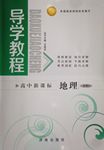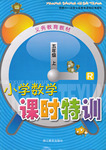| If you’re not making mistakes, you’re not trying hard enough. It’s good to make mistakes. That’s not a typo, folks, and I have not lost my mind. It is good to make mistakes, and here’s why. First of all, mistakes are a clear sign that you are trying new things. It’s always good to try new things because when you are trying new things you are growing. If you never try anything new, how can you improve? How can you expand? How can you innovate? The simple answer is, “You can’t.” Look around you. With very few exceptions, either everything you see in your physical world or every single detail of every single thing is the result of someone trying something new. Another good thing about mistakes is this, when you are making mistakes, you are learning. Consider this: Edison failed 10,000 times before he perfected the light bulb. When asked how he felt to fail that many times, he remarked that he hadn’t failed 10,000 times, but rather had learned 10,000 things that didn’t work. Finally, when you make a mistake you are that much closer to success. Why? Because when all is said and done, you will have tried some finite number of things before you succeeded. Every time you made a mistake you eliminated(消除) one of those things and are one step closer. But this all doesn’t mean that you should forge ahead with disregard for the consequences of a mistake. Quite the contrary, when you try something new you have to be willing to set some reasonable limits so that, in the event that it doesn’t work out the way you want it to, you will be in a position to try again. We all have limited resources in the form of time and money, so don’t blow them all on one approach to a problem. Realize that it probably won’t be perfect the first time and allocate these resources appropriately so you can learn, modify, and try it again. Only by embracing and using your mistakes in this way can you make significant advances in your business and your career. There is an old axiom that goes, “If you’re not making mistakes, you’re not trying hard enough.” So go forth and make mistakes. And learn. And grow, And prosper. 59. Which of the following isn’t suitable for the passage? A. Mistakes suggest that people are trying something new. B. People can draw lessons from their mistakes. C. Mistakes mean that people are getting closer to success. D. People can afford to make mistakes as long as they limit them. 60. The underlined word “typo” means ___________. A. printing mistake B. computer error C. poor handwriting D. bad typing 61. It’s good to make mistakes as long as _________. A. people use them positively B. people avoid them quickly C. they help people get well D. they don’t have side effects 62. What does the writer mainly tell us in the passage as far as mistakes are concerned? A. Don’t be afraid of making mistakes. They are unavoidable. B. Try your best to make fewer mistakes. They are expensive. C. Don’t be afraid of making mistakes. They are beneficial. D. The more mistakes you make, the more advances you’ll make.
练习册系列答案
相关习题
科目:高中英语
来源:
题型:阅读理解
| 江苏省苏州市2010届高三上学期期末调研测试(英语).doc | | | | | Picture this situation. It is late afternoon and you are 36 . You have an important dinner engagement that evening so you 37 to take an hour nap. Instead of setting your alarm you ask a friend who is visiting to wake you in an hour. He 38 . Two hours later, your friend wakes you. You ask, “Why didn’t you wake me after one hour?” He 39 that he thought you asked him to wake you in two hours and that is what he said. You then have to run around and get ready 40 , muttering to yourself about how you 41 have set the alarm rather than asking your friend to wake you. Had you done that, you would not have been so 42 to get ready. Your conclusion is correct. Your 43 of what happened looked at the system you used. Your friend’s 44 to wake you resulted from a miscommunication. 45 he didn’t hear you correctly or you misspoke. 46 at the situation from the point of view of being personally responsible is always better than blaming yourself or another. So how do you best be “responsible” in this situation? The answer is 47 in systems thinking. Dr. W. Edward Deming is the American statistician who is credited with 48 the quality practices to Japan. 49 his arrival in that country in 1950, the label “made in Japan” was synonymous with inferior(劣等的) quality. Now the same “made in Japan” label is synonymous(等同) with 50 quality. So what did Dr. Deming teach the Japanese that made such a 51 to the quality of their products? The answer is quite simple, yet profound. 52 on years of statistical analysis, Deming was able to validate(证明) that 94 % of all failures are not because people don’t want to do a good job. The fact is that 53 people want to do a good job. What, then, is the 54 if it’s not the people? It’s the system. The system failed in 94% of the 55 , not the people. 36. A. relaxed B. puzzled C. concerned D. tired 37. A. try B. decide C. promise D. expect 38. A. agrees B. admits C. accepts D. adopts 39. A. wonders B. doubts C. replies D. requests 40. A. carelessly B. quickly C. angrily D. suddenly 41. A. should B. could C. might D. would 42. A. slow B. rushed C. uncertain D. satisfied 43. A. understanding B. presentation C. description D. analysis 44. A. forgetfulness B. unwillingness C. failure D. fault 45. A. Either B. Neither C. Both D. Whether 46. A. Glaring B. Staring C. Glancing D. Looking 47. A. left B. found C. received D. completed 48. A. bringing B. turning C. fetching D. leading 49. A. Until B. After C. Before D. Since 50. A. different B. poor C. best D. high 51. A. difference B. destruction C. decoration D. distinction 52. A. Based B. Relied C. Focused D. Counted 53. A. few B. fewer C. more D. most 54. A. reason B. cause C. effect D. result 55. A. incidents B. accidents C. cases D. actions
查看答案和解析>>
科目:高中英语
来源:
题型:
| 江苏省苏州市2010届高三上学期期末调研测试(英语).doc | | | | | She ignores the fact __________ there are two other channels, __________ we find very silly. A. that; which B. that; that C. which; which D. which; that
查看答案和解析>>
科目:高中英语
来源:
题型:
| 江苏省苏州市2010届高三上学期期末调研测试(英语).doc | | | | | The drug came under strong attack from ___________ professional observers, who had been backed up by many doctors. A. confused B. confusing C. concerning D. concerned
查看答案和解析>>
科目:高中英语
来源:
题型:
| 江苏省苏州市2010届高三上学期期末调研测试(英语).doc | | | | | ---It’s supposed to rain tomorrow. ---I know, but the forecast ______ be wrong. Weather forecasts are far from 100 percent accurate. A. must B. could C. should D. will
查看答案和解析>>
科目:高中英语
来源:
题型:
| 江苏省苏州市2010届高三上学期期末调研测试(英语).doc | | | | | ---Before you sign the contract, please read it as ____________ as you can. ---Thanks for your ________________. A. carefully; requiring B. carefully; reminding C. careful; requiring D. careful; reminding
查看答案和解析>>
| | | | | | | | | | | 
 导学教程高中新课标系列答案
导学教程高中新课标系列答案 小学课时特训系列答案
小学课时特训系列答案